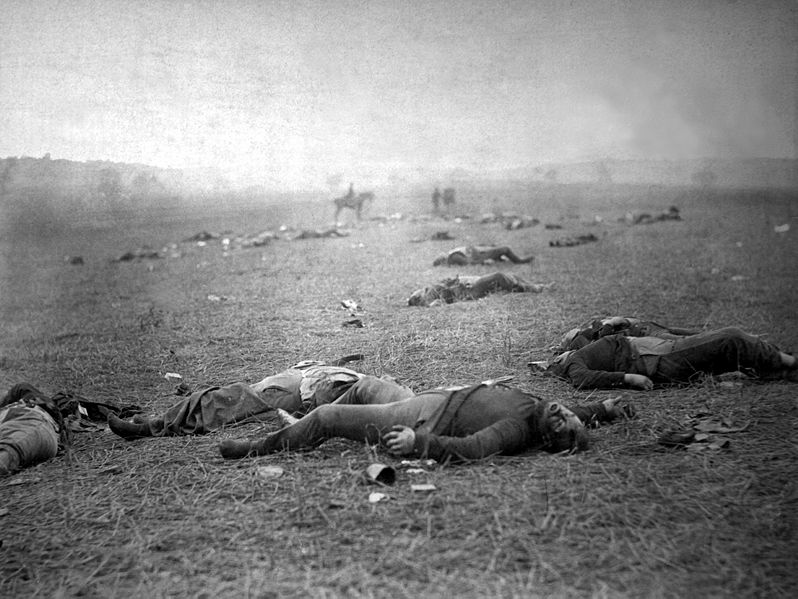Civil War Sesquicentennial, Part Two: Gettysburg
 By June 1863, the Confederates had won some major victories at Chancellorsville and Fredericksburg, although they paid a heavy price with the loss of the legendary Stonewall Jackson. Tragically, he was killed by some jumpy Confederate pickets who had mistaken him and his troops for Northerners.
By June 1863, the Confederates had won some major victories at Chancellorsville and Fredericksburg, although they paid a heavy price with the loss of the legendary Stonewall Jackson. Tragically, he was killed by some jumpy Confederate pickets who had mistaken him and his troops for Northerners.
Lee wanted to seize the momentum by moving into Northern territory through Maryland and Pennsylvania. His hope was to catch the Union army off guard and also to move the war away from the impoverished fields of Virginia and other parts of the South and take advantage of the fertile fields and plentiful livestock in Maryland and Pennsylvania.
Stonewall Jackson’s old 2nd Corps., now under the command of General Richard Ewell, who had lost a leg at Second Bull Run, marched into Pennsylvania headed toward Carlisle, while another army under the command of Major General Jubal Early, marched toward York and Harrisburg, which was the railroad center for the North. The Confederate Army continued to push North into Pennsylvania, using livestock, food, wagons, and clothing taken from Pennsylvania civilians (with a promise to pay them Confederate money once the war was won).
There was no thought of engaging in battle in Gettysburg, but rather one of the greatest battles ever fought on American soil began as a routine mission to obtain shoes.

 The Supreme Court heard
The Supreme Court heard